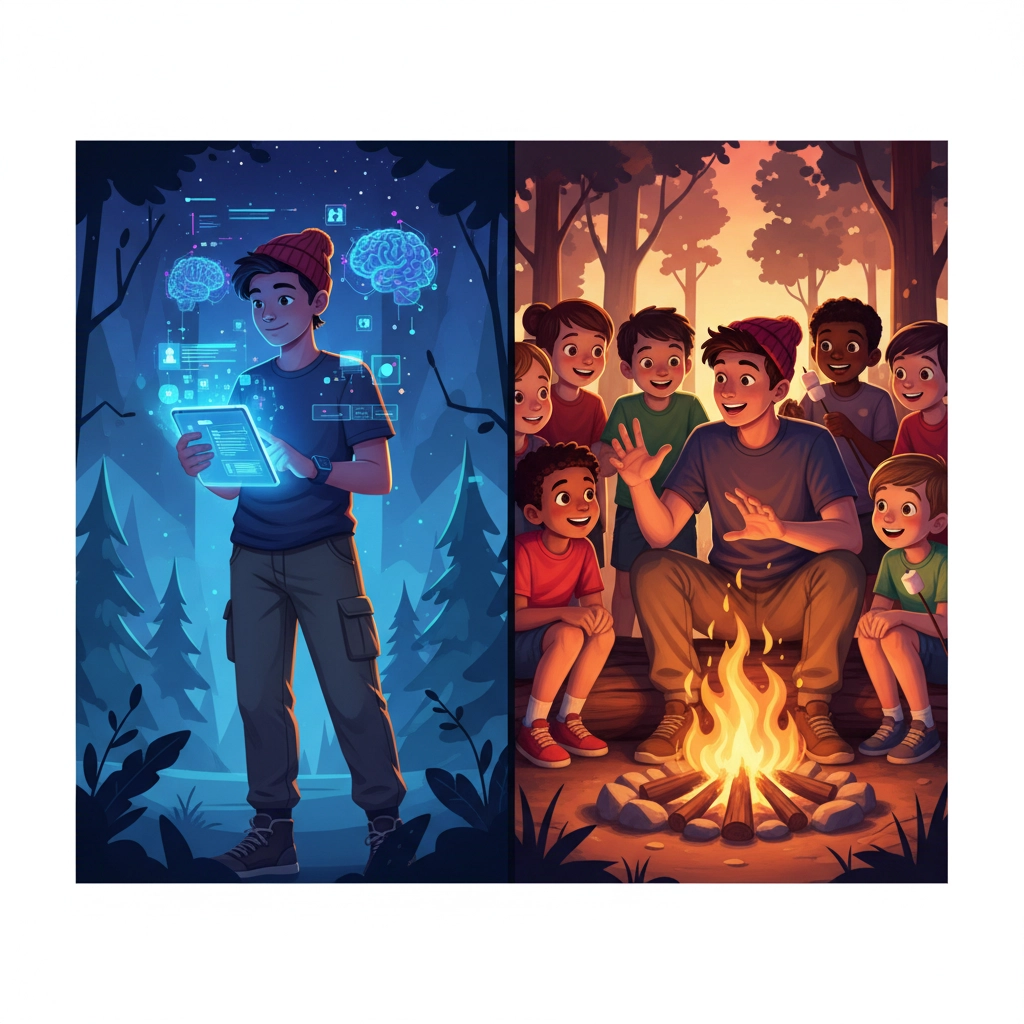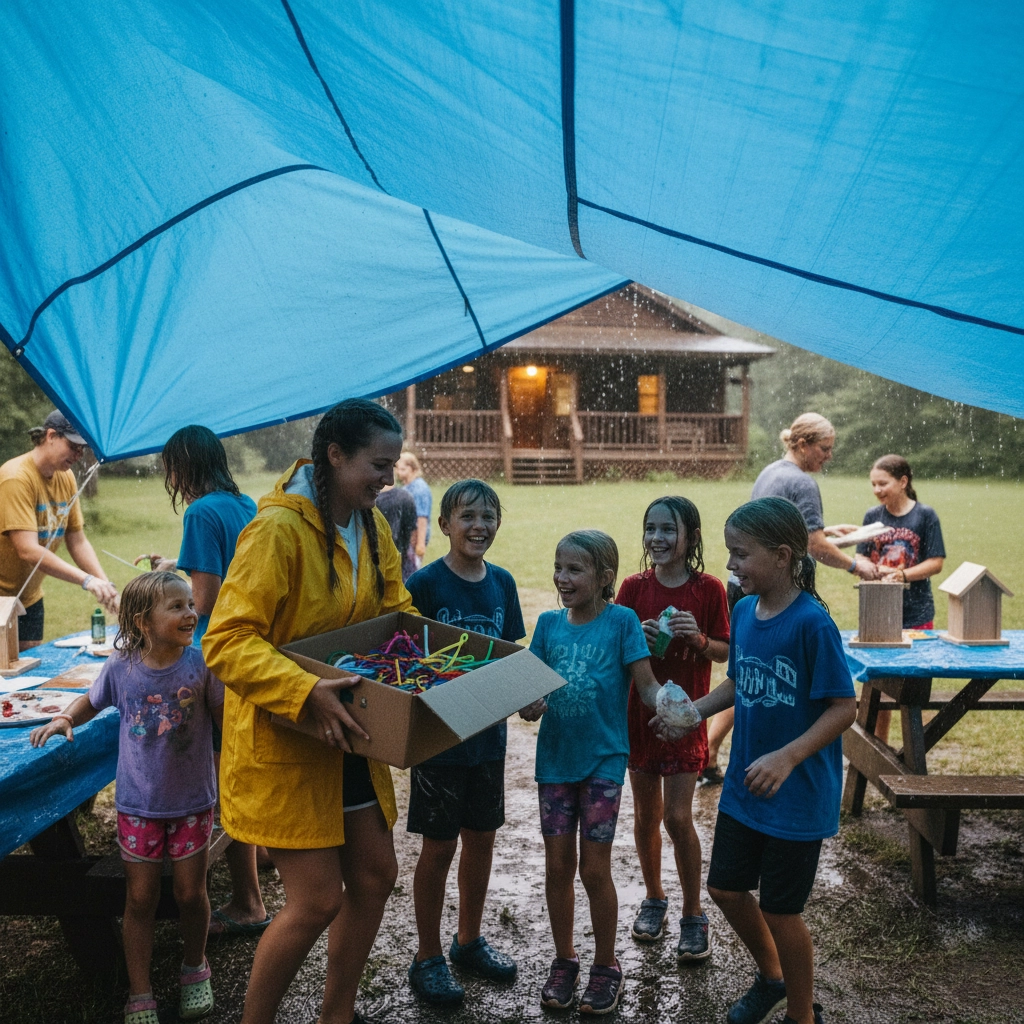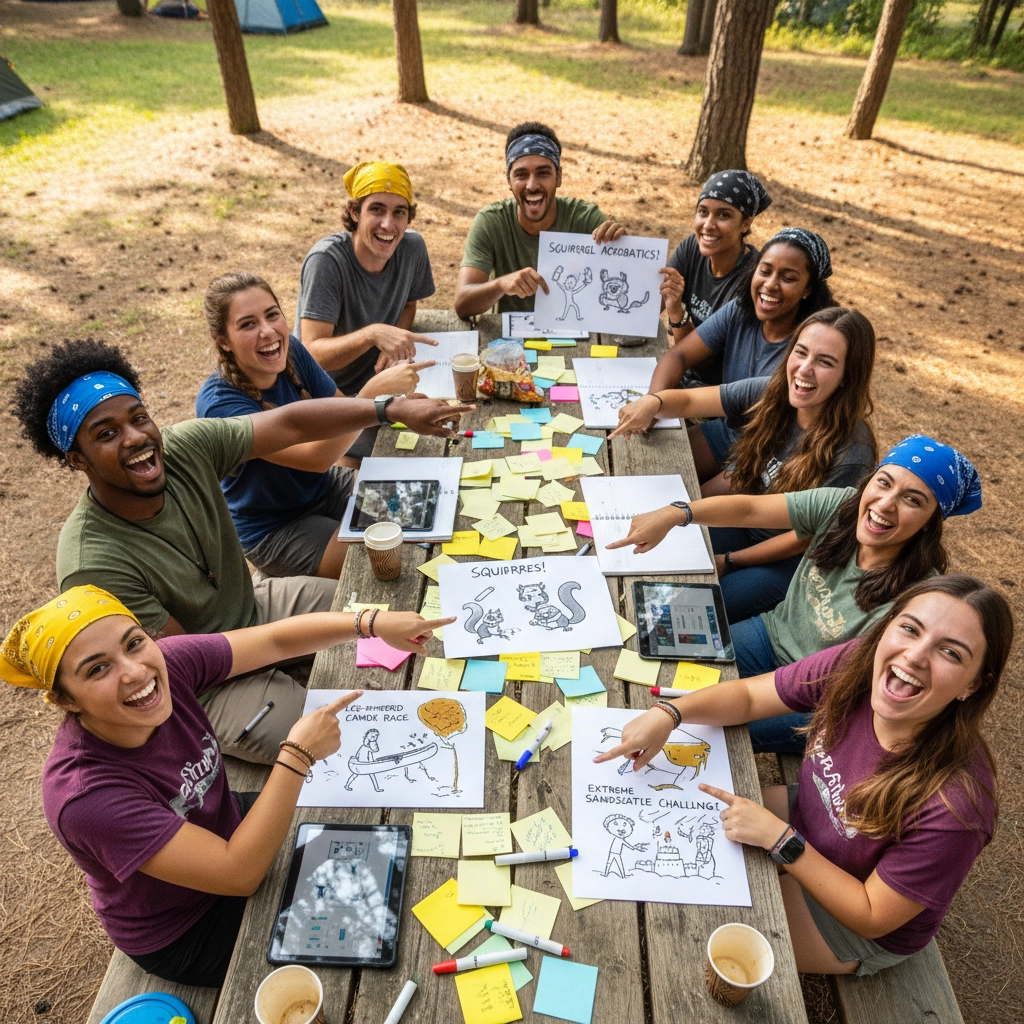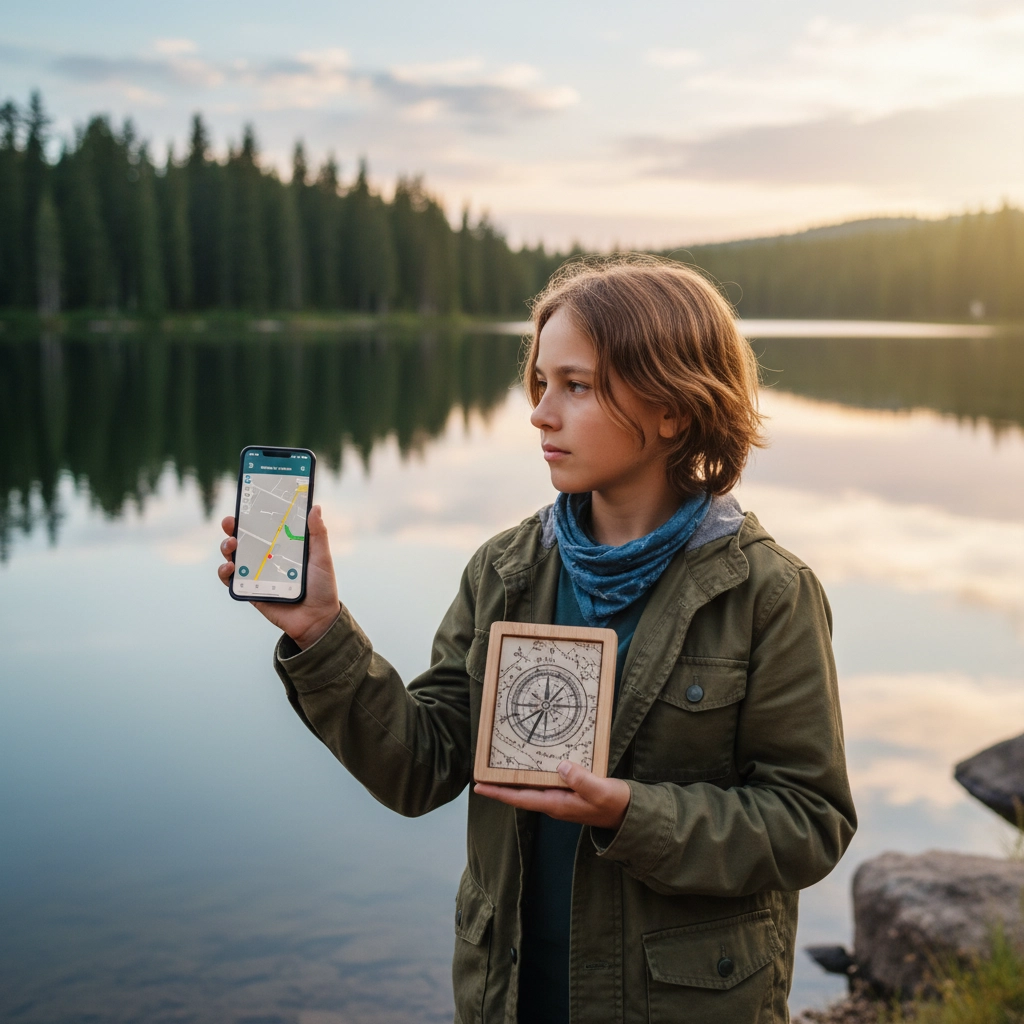The Summer Camp Daily Brief – October 13, 2025
- Matthew Kaufman

- Oct 13
- 5 min read
Here's what caught our attention today: AI is becoming the new "camp counselor" in classrooms, but that makes real camp experiences more important than ever. Let's dive into what this means for your staff and campers.
The Big Story: AI Tutors Go to College
California Community Colleges just rolled out AI-powered learning assistants across 116 campuses, serving 2.1 million students. The results? A 20% boost in GPA, 13% rise in final scores, and 36% increase in student motivation when AI was used as an on-demand learning assistant.
Here's why this matters for your camp: If kids are getting used to instant AI "answers" at school, camp becomes even more valuable as the place where they practice working through problems without digital shortcuts.
Think about it: when a camper's tent stakes won't stay in rocky ground, there's no AI assistant to solve it. They have to think, try different approaches, maybe ask a friend for help, or figure out a creative workaround. That's the kind of problem-solving muscle we're building.

What's Happening in the AI + Education World
Schools Are Going All-In on AI Support
India plans to introduce AI studies starting in Grade 3 beginning in 2026-27. Meanwhile, U.S. educational publishers are embedding AI directly into lesson plans and vocabulary aids for teachers.
But here's the catch: Researchers are calling for "human-in-the-loop" models because blind trust in AI suggestions isn't working. Sound familiar? It's exactly what we do at camp: we give kids tools, but we teach them when and how to use human judgment.
Your Gen Z Staff Want More Than Just Paychecks
A new Deloitte survey shows 96% of Gen Z and Millennial workers say skills development is critical when choosing a job. They're not just looking for summer employment: they want to grow.
Some juvenile halls and camps are already training staff to use AI and VR tools for real-time lesson adaptation. But here's what they're missing: your Gen Z staff don't just want to use cool tech. They want to understand it, question it, and know when to put it aside.

Why Camp Is the Perfect AI Training Ground
While AI handles more of the "cognitive scaffolding" in classrooms, the skills that resist automation become more precious: empathy, deep observation, improvisation, and relational problem-solving.
Your camp provides daily challenges that can't be automated: cabin dynamics, weather changes, homesick campers, or a rainy day activity pivot. These are the moments where staff and campers practice "struggles that build resilience."
What to Try With Your Team
Start Small: AI Literacy Mini-Course
Before camp starts, offer your staff (and older campers) a quick 30-minute orientation to generative AI. Cover the basics: what it can do, what it can't, how to write good prompts, and what risks to watch for.
Why this helps: It builds shared vocabulary and prevents the "AI as oracle" mindset. Your staff will be better equipped to help campers think critically about AI outputs.
Try Paired Design Tasks
Ask your staff to co-design a camp activity using AI suggestions: maybe theme ideas for an all-camp game or a packing list for an overnight. But then have them refine it manually, adding the human touches that make activities work for your specific group.
This reinforces that AI is a collaborator, not a replacement. Plus, it's actually kind of fun to see what weird suggestions AI throws out for camp activities.

Build in Meta-Reflection Moments
After any tech-oriented activity or AI experiment, pause and ask: Where did the AI help? Where did it fail? When did we need human judgment?
These reflection moments cultivate awareness of how, when, and why human agency still matters. It's the same skill we use when teaching kids to evaluate any new information or tool.
Offer Micro-Credentials in AI Facilitation
Design short internal training modules on prompt engineering, bias awareness, and fact-checking. Or partner with a local ed-tech organization if you don't want to build from scratch.
This aligns with your Gen Z staff's learning expectations while strengthening their skills. They get professional development, and you get staff who can guide campers through AI interactions thoughtfully.
Embrace "Controlled Friction"
Here's a counterintuitive tip: resist designing flawlessly efficient experiences. Leave room for small hiccups: weather changes, supply mix-ups, schedule adjustments.
Why? Because these moments let staff and campers practice on-the-fly adaptation. It builds trust in human creativity and reinforces that not everything needs to (or should) run like a perfectly programmed system.

What This Week Looks Like in Practice
Monday: Start your staff meeting with "What surprised me about AI this week?" Let everyone share one thing: maybe something they saw on social media or tried themselves.
Tuesday: Try an "AI detective" activity with campers. Present some weird AI-generated answers and let them debug what went wrong. Make it playful, not scary.
Wednesday: Ask each staffer about an "AI oops" they noticed this week. Share stories and brainstorm fixes together.
Thursday: Do a "camp brainstorm → physical build" sequence. Use AI to generate ideas for something (maybe camp decorations or a new game), then build it with real materials.
Friday: Reflection time. Journal prompt for everyone: "When did I trust tech too quickly this week?"
The Bottom Line
AI isn't going away, and your campers are already living with it. The question isn't whether to engage with AI at camp: it's how to do it in ways that strengthen rather than replace human problem-solving skills.
Your camp is uniquely positioned to teach kids and staff how to partner with AI tools while maintaining their independence and creativity. You're building the humans who will know when to use AI, when to question it, and when to trust their own judgment instead.

Key Takeaways
AI is already part of your campers' world: ignoring it doesn't remove its influence
Camps that emphasize questioning, experimenting, and reflecting with AI help kids become healthier tech users
Your Gen Z staff want growth opportunities, not just summer jobs: meet them where they are
"Controlled friction" in camp experiences builds resilience that smooth AI interactions can't provide
Start small, experiment, and iterate: you don't need a full AI curriculum right away
Remember: the most successful people are the ones with strong problem-solving skills. Camp is where we practice those skills in real-world situations, with real consequences and real rewards. AI can be part of that practice, but it should never replace the messy, unpredictable, deeply human work of figuring things out together.
What's one small AI experiment you want to try with your team this week? The key is starting somewhere and learning as you go.
Follow @mattlovescamp on Instagram for daily insights and join our community at ilove.camp to connect with other camp professionals navigating these exciting changes.



Comments